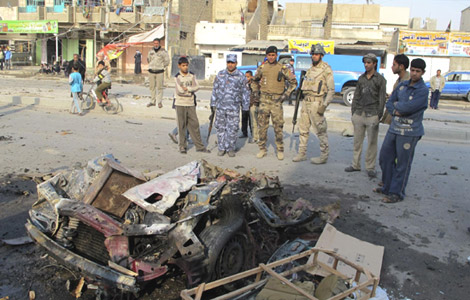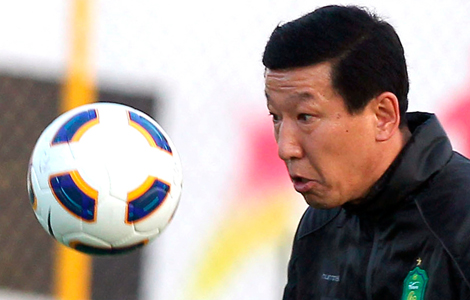Mutual frustration behind latest Israel-EU row
Updated: 2011-12-23 09:05
(Xinhua)
|
|||||||||||
JERUSALEM - Israel reacted strongly to comments made earlier this week by four European members of the United Nations Security Council (UNSC) on Israeli settlement construction and so called "price tag" attacks.
It was during a meeting of the UNSC on Israeli-Palestinian developments that France, Portugal, Germany and Britain joined other members of the council in condemning a recent Israeli decision to build over 1,000 new housing units in East Jerusalem and the West Bank.
UN criticism of Israeli settlement construction is something that the Jewish state has gotten used to, and is usually met with a laconically-worded communique by Foreign Minister Avigdor Lieberman or other senior members of the ministry.
However, what set the latest statement apart from previous cases were the UNSC's remarks on the "price tag" vandalism and arson attacks against mosques, allegedly by extremist settlers in retaliations over Israel's court-ordered removal of illegal outposts on the West Bank.
In a response to the UNSC's remarks, the Foreign Ministry urged the UNSC's European Union members to stop interfering in Israel's internal affairs, and concentrate on "peacemaking in bloodshed hotspots such as Syria, on instilling democracy and moderation in Arab countries aspiring to freedom, and on defusing the global danger embodied in the Iranian nuclear race."
Israel's reaction was based on its contention that it really has a strong case to argue, according to Dr. Jonathan Rynhold, of Bar-Ilan University.
Strong case
"This type of thing really sends a message that the international community would rather do what is convenient than what is right," Rynhold said.
With regard to the "price tag" attacks, Rynhold said that "it's a serious problem and Israel is dealing with it seriously."
Dr. Sharon Pardo, of the Ben-Gurion University of the Negev, told Xinhua that one reason for the harshened diplomatic language between the EU and Israel is that "both sides think they have the right to criticize the other based on the poor development of relations between them."
He added that the language used in the latest round of verbal spar hasn't been heard for a number of years, and that Israel-EU relations are at an all-time low.
"The situation on the ground currently doesn't reflect the wishes of the EU, and that's why the EU feels that it has a stronger case," Pardo said, "It's a different type of violence on the ground that we see right now."
Economic factor
Despite the fact that Europe is Israel's second largest export market after the United States, diplomatic relations have remained frosty since Israel's military foray into Gaza in December 2008. The incursion was meant to put a halt to incessant rocket fire by Palestinian groups at Israeli towns and cities.
While, from an Israeli perspective, the offensive was an issue that only directly affected them and the Palestinians, Pardo said that the EU sees all relations with Israel in a context of the Israeli-Palestinian peace process.
Hence, continued construction of Israeli housing units on the West Bank or attacks on mosques not only leads to negative reactions from the Palestinians, but also from the Europeans. The EU sees the events not only as a deterioration in Israeli- Palestinians relations, but also as a move contrary to their intentions for the peace process.
Prof. Alfred Tovias, of The Hebrew University of Jerusalem, believed the Israeli reaction was based on the perception that " the Europeans are not in a position to tell Israel what to do and what not to do, because 'the EU is totally absorbed with their own financial crisis and trying to save Euro."
France and Germany - two largest economies within the EU that have adopted the Euro - are currently in the midst of trying to work out how to save the currency from collapsing, due to huge public debts of countries like Greece and Italy.
Hot Topics
HIV/AIDS, Egypt protest, Thanksgiving, climate change, global economic recovery, home prices, high-speed railways, school bus safety, Libya situation, Weekly photos
Editor's Picks

|

|

|

|

|

|







